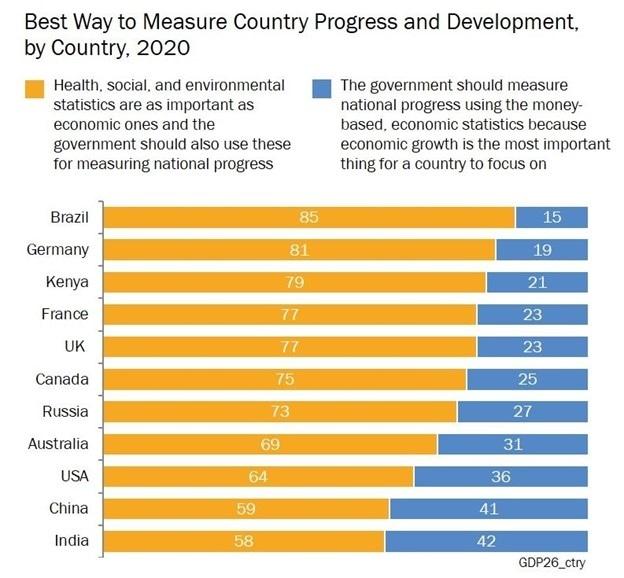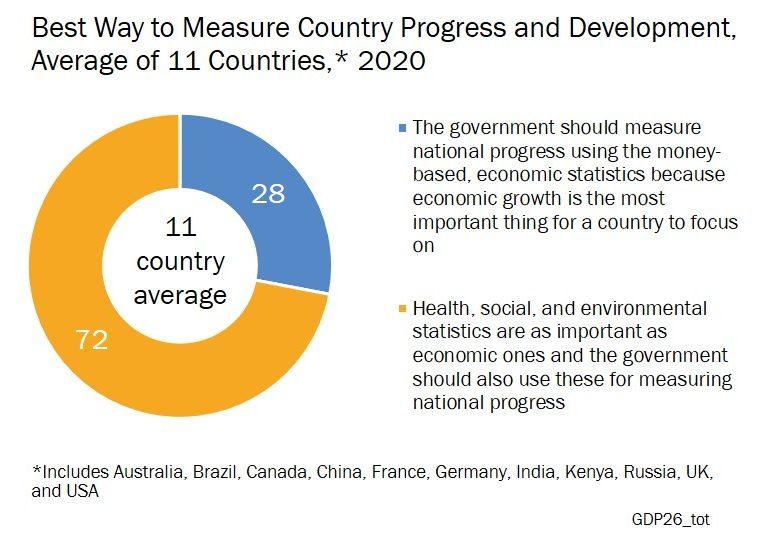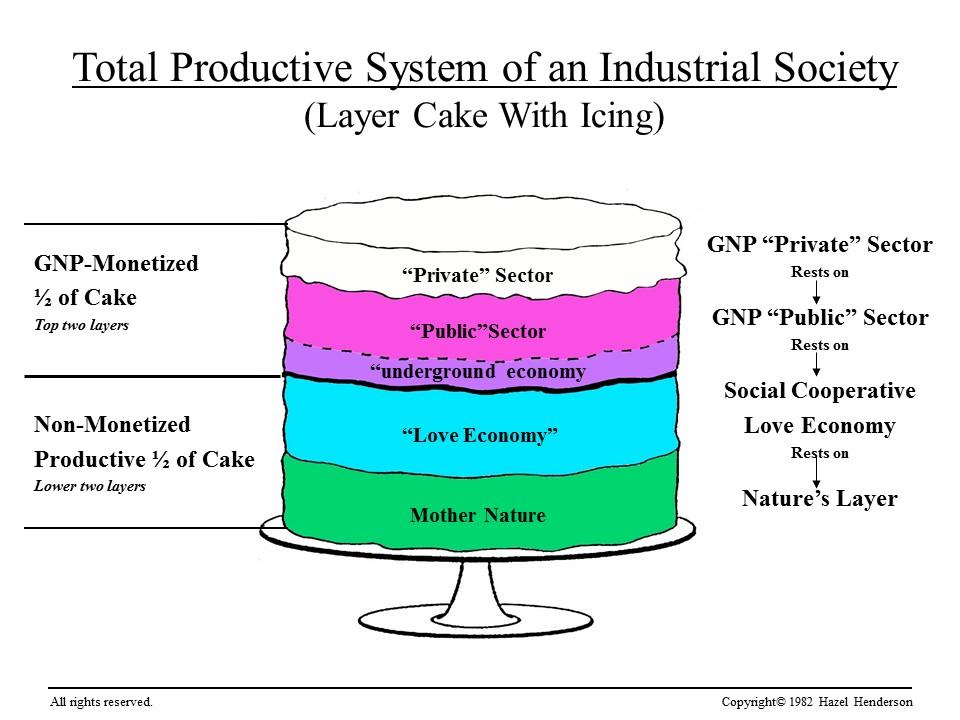Evolving Finance, Money and Markets
© 2021 Hazel Henderson
Today’s global casino is now experiencing yet another step change, as central banks shift their focus from austerity and debt to stimulus to cope with pandemics and climate crises and fending off Facebook‘s competitive “Libra” and other cryptos. As the rules change in finance and money, they are also changing in markets, as they adapt to ecological limits, consumer pressures, and shareholders’ changing values. Key public intellectuals have emerged who are facing down all the old verities in textbook economics and over-averaged macroeconomic statistics and models, including GDP, still driving societies into unsustainable paths. These pioneer thinkers are re-shaping policies and challenging incumbent, fossilized corporations which, since the 19th and 20th centuries have dominated politics in many countries and steered the narrow forms of globalization that have led to today’s widespread political backlashes.
In our bi-polar 21st century, the best way for China and the USA to share their pre-dominant positions is to compete in accelerating the global transition to science-based, cleaner, more inclusive paths to human development while continuing their collaboration with all the United Nations (UN) agencies in promoting the Sustainable Development Goals (SDGs), ratified in 2015 together with 191 countries, as I advocate in “China: Key Player in a New World Game”. On Earth Day, 2021, US President Joe Biden convened over 40 world leaders for a 2-day summit on accelerating the already evolving global transition from fossilized economies to renewably-resourced, circular, more equitable societies and the knowledge-rich, green infrastructure and millions of jobs for the next stage of human development. Yet investments and use of fossil fuels continues, still adding CO2 emissions as Fatih Birol, IEA & The International Energy Agency warns.
Some of today’s most courageous intellectuals are also watchdogs, as for example, financial expert Karen Petrou in “Engines of Inequality: The Fed and the Future of Wealth in America” (2021) and Dorothy A. Brown’s examination of systemic racism in the USA in “The Whiteness of Wealth: How the Tax System Impoverishes Black Americans and How We Can Fix It“ (2021). Others are academics, notably Professor Stephanie Kelton, author of “The Deficit Myth” (2020), who is the most lucid explainer of the school of Modern Monetary Theory (MMT), now sweeping the parliaments of many democratic countries. Another is political economist Mariana Mazzucato, whose earlier books “The Enterprising State“ (2013) and “The Value of Everything” (2018) I have reviewed, and whose latest “ Mission Economy: A Moonshot Guide to Changing Capitalism “(2021) leads the current debate on re-defining infrastructure and how best to steer the evolving transition to renewably-resourced, circular economies, which we cover in our annual Green Transition Scoreboard® reports (2009-2020). I have also reviewed renegade economist Kate Raworth’s “Doughnut Economics“ (2017).
Each of these books dive into the workings of all the operating sub-systems of our global financial casino, and the many cognitive biases at all levels in the mature industrialized countries. Their venerable Organization for Economic Cooperation & Development (OECD) advocates the famous “Washington Consensus” worldviews shared by the international financial institutions: the World Bank, the International Monetary Fund (IMF); the World Trade Organization (WTO), and the Bank for International Settlements (BIS). Since all these legacy organizations are now under attack from many sides, let’s examine them in further detail through the lenses of these leading authors and advocates of radical new approaches to sustainable paths to our human future on this planet. These international bodies suffer from Daniel Kahneman’s famous list of humanity’s cognitive biases in “Thinking Fast and Slow” (2013), particularly our propensity for “theory-induced blindness“. Our research and reports have found such biases embedded in decision-algorithms and policies, as described by mathematician Cathy O’Neil in “Weapons of Math Destruction” (2016). These algorithms for engagement and recommendations are designed by social media giants to keep us addicted or outraged, often spreading conspiracy theories now threatening our democracies, as I report in “Steering Social Media Toward Sanity".
All these human cognitive limitations and perverse subsidies to fossil fuels are now preventing our progress to a saner, sustainable future and the goals outlined by 193 countries in the UN Sustainable Development Goals (SDGs). Meanwhile, fighting money-laundering and tax havens in the global casino is failing, with the cost of such crimes in 2018 of $5.8 trillion, according to The Economist, April 17, 2021. At last, 139 rich and poor nations losing all these revenues due from multinational corporations, are banding together. They are determined to place an enforceable global floor of minimum corporate taxes as basic for global sustainability. This effort is spearheaded by Janet Yellen, Secretary of Treasury in the US administration of Joe Biden, reported by Peter Coy in “Stopping the Race to the Bottom on Taxes“, Bloomberg Business Week, April 19, 2021.
Let’s first look at Karen Petrou’s case against the Federal Reserve in the USA, taking us through the politics of money-creation and credit allocation, which we covered in our TV Special “The Money Fix“. She shows how well-intentioned regulations and Fed policies after the meltdown of 2008 exacerbated inequality. Petrou’s keen expertise critically assesses the Fed’s long underperformance and many failures to exercise its mandate. She faults its blind acceptance of obsolete, over-aggregated economic statistics and provides new clarity on these models. Petrou takes us through the history and purpose of the Fed since its founding in 1913. She shows how its dominance by private interests and banks, its policy mistakes exacerbated the agonies of so many citizens during the Great Depression and how the Fed de-railed many of the initiatives of FDR’s New Deal. Fast forward, Petrou offers a look at the future of cryptocurrencies, the power grabs by social media monopolies, including Facebook’s Libra global crypto, which challenges all central banks and sovereign fiat money. This book is a tour de force and required reading by policy-makers, academics, and concerned citizens in the USA and beyond.
Law Professor Dorothy A. Brown further explains additional hidden flaws in “The Whiteness of Wealth: How the Tax System Impoverishes Black Americans and How To Fix It“ (2021). She shows how conscious and unconscious biases since the Jim Crow era, have skewed seemingly neutral, progressive tax policies such as “ability to pay” and “horizontal equity“ since 1948, allowing married couples to file joint income tax returns. These penalize African-American couples, since their respective incomes are more likely equal than those of white citizens. Such seemingly innocuous tax rules interact with similar inequities in housing policies, zoning, college loans, and access to farmland. Even the Homestead Act of 1872 famously offering citizens “40 acres and a mule” excluded Black Americans. Professor Brown highlights these inequities, advocating systemic changes: including tax rebates for these unequal outcomes, as well as reparation tax rebates based on 1.) clear metrics on race from the IRS along with its data on gender and age; 2.) return to the progressive tax system with no exclusions and a single deduction and 3.) a tax credit compensating for documented cases of legally-sanctioned racism perpetuated in tax laws. This book is also required reading to address inequality.
At last, we now see a few “mea culpas" from economists whose disastrous advice led politicians and private decision-makers astray. Economists obsessively focus on money-based statistics, cash flows and price movements. They focus on inflation, debt, and market risks, instead of seeing all the physical global risks economists helped create in the real world, culminating in today’s species extinction, climate crises and pandemics. I describe ways out of these errors in “Pandemics: Looking Back from 2050“. Two British economists, Paul Collier and John Kay in “Greed is Dead: Politics After Individualism” (2020) identify all their professions’ mistakes, including their narrow focus on individual actors in private markets. They now reaffirm the values of mutuality and social cooperation. They even embrace the ecosystem values vital for human survival, albeit almost 50 years after my “Economists versus Ecologists” speech to US economists, New York Times, Business Section, October 24, 1971. Co-author Paul Collier, a former World Bank economist, further nailed the case against economists: “The profession has been unprofessional …….to re-establish credibility we must provide a more balanced analysis in which the downsides are acknowledged … rather than by further indignant defenses of globalization“. Most of Collier’s and Kay’s fellow economists remain silent, with notable exception of Australia’s Steve Keen in his “Debunking Economics“ (2001). Most economists continue science-denying and fronting for the greenwashing efforts of their corporate or government clients.
An example of outright conceptual hijacking and usurping of ecological sciences is “The Economics of Biodiversity“ February 2021, by brahmin economist Partha Dasgupta, a review funded by the British government. Dasgupta reiterates the view that individuals must take responsibility for protecting the Earth, concluding that citizens, rather than economists, must be educated! The greatest hijack is that by Sweden’s central bank in lobbying the Nobel committee to set up the “Riksbank Prize in Economic Science (sic) in Memory of Alfred Nobel”, in an attempt to legitimize economics as science, rather than acknowledge this discipline as a powerful profession. This 20th century intellectual scandal was exposed by Nobel descendent, lawyer Peter Nobel and the Nobel family have denounced this prize as copyright infringement, as reported in my articles co-authored with Peter Nobel at www.hazelhenderson.com.
How did economics come to dominate academia, policy-making by governments and private decision-making in the 20th century? Part of the answer lies in their hijacking of explanations of humanity’s early inventions of communication, trading, markets and money, using shells, wampum, salt, cattle, wooden talley sticks or knotted string. These human capabilities for communicating, organizing, cooperating, sharing, bartering, and mutual aid drove our species success. Charles Darwin, also saw our abilities to bond as making us the most successful species on our planet, at least so far! In this Age of the Anthropocene, this short-term success was achieved by driving today’s Sixth Great Extinction of other life forms. Humans have traded for centuries, using money and village markets, as described by Karl Polanyi in “Ancient and Modern Economies” (1968). Adam Smith and the French physiocrats and other early observers of markets pioneered the field of political economy, see our TV show “How Charles Darwin and Adam Smith Were Hijacked”.
As human populations expanded around the Earth, economists followed up by focusing on these money exchanges that tracked our relationships and agreements over using natural resources. Simplified use of prices and cash flows in markets underpin their money-based metrics. None extended their horizons much beyond GDP and other macro-economic indices. Ethical Markets’ series of surveys, ”Beyond GDP” with Globescan in 12 countries launched in 2007 at the European Parliament’s “Beyond GDP“ debate (www.beyond-gdp.eu), and repeated in 2009, 2013, and 2020, confirmed that citizens are way ahead of economists. My critique of economic models in “The Politics of the Solar Age” (1981.1988) was ignored, while well-received in the New York Times, London-based New Scientist and other journals. I recommended reducing all academic economics courses to covering the history of political economy and its evolving thought and practice, while embedding such courses in ecology, systems-analytics, information theory, structural morphogenesis, complexity theory, catastrophe modelling, and scenario building of alternative futures in “Mapping the Global Transition to the Solar Age: From Economism to Earth Systems Science“, London, (2014).
In “The Deficit Myth” (2020), Professor Stephanie Kelton, also a monetary expert, lays bare in greater detail the politics of money-creation and credit allocation. During her service as economist for the US Senate Budget Committee, she shows the ways economists often spun and concealed the motives of powerful interest groups, using conventional models and the methods of the Congressional Budget Office (CBO) to “score” various legislative proposals. These conceptual tricks can weaponize public debates over government investments in much-needed infrastructure, education, and other vital public goods and services, by labelling them as “borrowing” and “debt“ owed to bondholders and financial markets. These arguments also claim that all such investments must be paid for by cutting other programs. All this is buttressed by the filibuster to block the Biden agenda to make our economy fairer and shifting to renewable resources.
Like Petrou, Kelton reinterprets all the alarms over deficits, inflation, tax increases, and fear-mongering over burdening our children with debt and interest payments to bondholders. Kelton shows how all these rhetorical gambits obscure the role of the US Congress in its power of the purse over budgets and our money supply, affirmed in the Constitution. Of course deficits matter, says Kelton, but so do all the assets they create, which I stress are not yet reflected in GDP. Thus, if GDP were to include an asset account, as in double-entry book-keeping, these assets would balance out much of the government investments in public goods, service, and infrastructure, and cut most countries’ debt-to-GDP ratios by up to 50% …with a few keystrokes! Kelton also focuses on obsolete economics and how these concepts and ideologies prevent debates over needed public investments in Congress.
Generations of wealthy US libertarians have funded laissez-faire economics in countless university-based academic courses and weaponized these themes in think tanks and foundations, including the Cato Institute and the Heritage Foundation. These courses distorted applications of US laws, including those on anti-trust for breaking up monopolies, such as today’s powerful global social media. Senator Amy Klobuchar’s book, “Antitrust” (2021) takes on these issues. This colonizing of academia and all the rhetorical use of economics jargon to conceal this blatant use of power is described elegantly by Blair Fix in “Power and the Dialect of Economics” in Real World Economics Blog. These oligarchs are still funding opposition to President Biden’s economic policies to “Build Back Better“ and re-design policies to address structural inequalities. This libertarian economics meme is always “governments bad …markets good“! These ideologies also contributed to the election of Donald Trump, with help from Vladimir Putin in 2016. These same powerful funders influenced the US Supreme Court’s disastrous Citizens United decision in 2010, allowing the anonymous political PACs and floods of political donations documented by Jane Meyer in “Dark Money“ (2017).
In “Mission Economy: A Moonshot Guide to Changing Capitalism“ (2021) political economist Mariana Mazzucato expands on her “The Enterprising State” (2013) and “The Value of Everything” (2018) to promote the Biden administration $2 trillion plus jobs and infrastructure plan for re-invigorating the US economy. The transition to fossil-free, more equitable renewably-based systems we have tracked, is now unstoppable, with a cumulative $10.3 trillion in the pipeline globally as of 2020. The underlying innovations of green infrastructure are the necessary underpinnings, as well as what we term “infostructure” suitable for our Information Age. This embraces broadband for all, as well as education, healthcare, and communities unpaid and underpaid caring sectors, which I have described as the Love Economy underpinning of all societies. Mazzucato, now much in demand by policy-makers in Europe and now in the USA, recounts her advisory role for NASA and draws parallels between Biden’s plans and the Apollo Mission of the 1960s. She recounts all the innovation, new industries, and development NASA helped create. She now sees the need for similar national efforts to create more sustainable, just economic futures for all, as promised in the US Declaration of Independence. Mazzucato’s influence is consistent with that of Stephanie Kelton, Kate Raworth, (see our webinar forthcoming in June 2021), as well as with other paradigm-shifters already mentioned. Mazzucato’s book is necessary for policy-makers to understand the basis for Biden’s policy initiatives.
Needless to say, it is no surprise that all these fearless intellectuals leading the new paradigm approaches are women. Women have been shut out of science policy, finance, and economics by incumbent patriarchal elites until quite recently. Even in the 1970s, I experienced this while serving as a cabinet-level science policy advisor to the US Congress Office of Technology Assessment (OTA)’s Advisory Council. Back then, there were only nine women in the US Congress and one lone Senator. Attending my first meeting with this OTA Council in Room 100 off Statuary Hall in the Capitol, my all- white male colleagues were corporate CEOs, university presidents, and Nobelists. On my arrival, they asked me to go and get the coffee! The April 2021 episode of the PBS TV series “NOVA” explored the super-human efforts of women scientist at Harvard and MIT, to get their administrations to take seriously their well-documented charges of gender bias, harassment and even bullying by male professors.
The painful awakening of US citizens in 2020 and 2021 to the inequities revealed, calls for an inevitable reconditioning of our society and moving further toward our aspirations of “E Pluribus Unum” in our founding documents. Heather McGhee, former CEO of Washington-based, Demos think tank, in her “The Sum Of Us“ (2021) gives the clearest account of how deep are the cognitive and structural racist biases in our laws and economy. She shows how they have exacerbated inequality and how reforms are at last taking hold. We all witnessed and are experiencing changes and the need for reforms in the pandemic, to our health system, education, and in racist policing. The unnecessary, tragic deaths of so many of our Black, brown citizens and those of ethnic heritages, transgendered and non-gender-conforming Americans are no longer tolerable, as well as the shameful attacks on and persecution of the original native populations of the North American continent. By facing our history as political scientist Jill Lepore shows in her richly illustrated “These Truths: An American History“ (2019) is the healthiest way forward to a more perfect union. The planet is now teaching humans directly: cooperation, sharing and caring at all levels are basic conditions for our survival.




